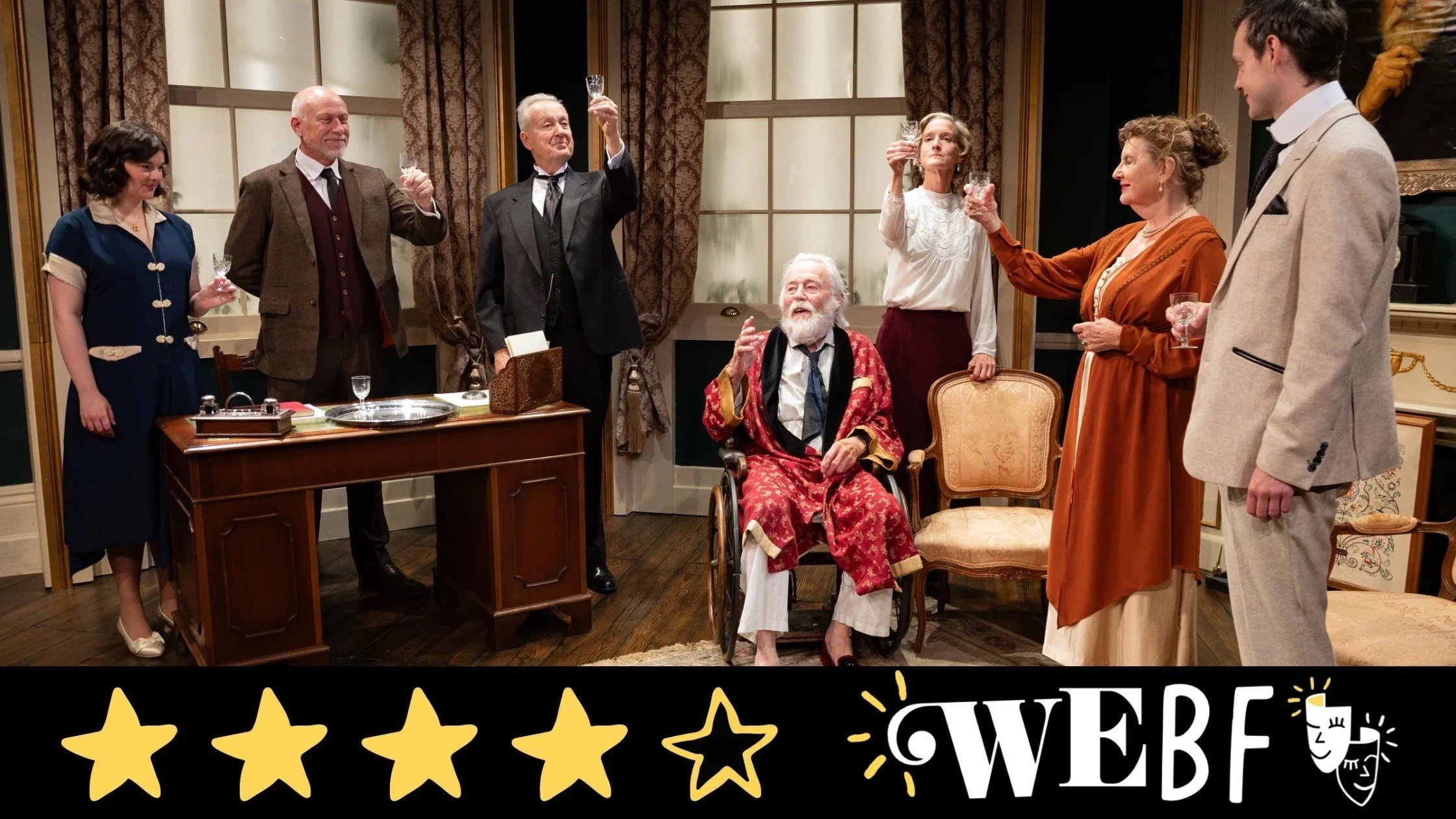Review: THE TRUTH ABOUT BLAYDS, Finborough Theatre
Photo credit: Carla Joy Evans
A. A. Milne is remembered now as the author of Winnie the Pooh, and the father of the original Christopher Robin, but was also a prolific playwright. One of his eighteen plays has now been revived at the Finborough Theatre, the first time it has been seen in London since its premiere in 1921. The Finborough famously never puts on anything that has been seen in London during the last 25 years but in this case, it is almost a hundred years since this play was produced.
It's a fascinating and well-acted production of a play which, if not exactly a lost masterpiece, still presents an engaging and sometimes amusing evening. Oliver Blayds is 90 years old and his health is failing. He is a highly respected poet, a national figure whose fame has brought wealth and acclaim to those in his family who now gather round him. He is perhaps closest to his daughter Isobel, but we also meet two of his grandchildren, another daughter Marion, and her husband William, also secretary to the great poet. The other character in the play, and set to be important in the plot, is literary critic A. L. Royce.
In the first act, we meet the great writer himself, played in masterly style by the eminent actor William Gaunt (remembered by this reviewer who saw him in rep in Salisbury and Farnham in the 1960s). In particular, he conveys quite touchingly the close relationship he has with his daughter Isobel, with Catherine Cusack well able to suggest the uncertainty and anxiety of this woman. As a pairing, they bring the first act to a close in what is the most affecting scene of the play.
After an interval, the following two acts are combined and show the aftermath of the great man’s death, and the revelation he shared with Isobel that he was not in fact the author of the poems for which he is revered: they were written by a youthful friend who died at an early age. This revelation gradually peels back the layers of respectability worn by the Blayds-Conway family, revealing their willingness to deceive in order to benefit from the great man’s legacy. As the poet’s son-in-law and secretary, Oliver Beamish provides a nice combination of severity and exasperation, and has taken over the role at short notice. Karen Archer alternates between bewilderment and a desire to smooth over difficulties as the flawed Marion.
The grandchildren are not fully developed as characters by Milne, but Lucy Jamieson makes her mark as Septima even though the part offers her few opportunities. George Rowlands has a little more to engage with as the feckless Oliver, incipient politician to his fingernails, and both actors give an example of the almost forgotten art of cigarette acting. As Royce, Rupert Wickham manages to engage with some of the more outlandish reaches of the plot by facing them straight on and giving a thoughtful and truthful performance.
The Truth about Blayds requires a director who understands the well-made three act play, can provide the necessary pace, and is willing to minimise unnecessary movement to allow the dialogue to be heard. In the close confines of the Finborough, every glance and sidelong look is noticed, and David Gilmore gives us a production that provides this forgotten play with everything it needs. Long-time Finborough designer Alex Marker gives us an impressive setting which unites audience and cast in the same room, and the costumes by Carla Joy Evans convince even at such close quarters.
Once again, the comfortable and welcoming Finborough Theatre presents us with a fascinating slice of theatre history in a powerful and authoritative production.
**** Four stars
Reviewed by: Chris Abbott
The Truth About Blayds plays at London’s Finborough Theatre until 4 October, with further info here.


